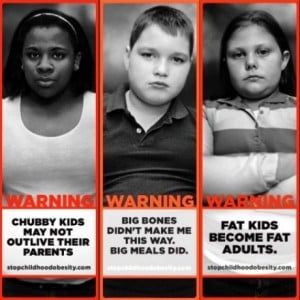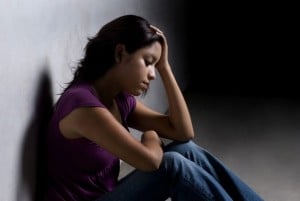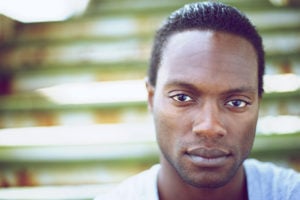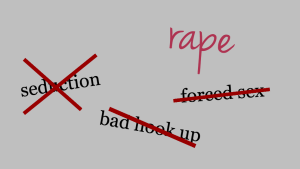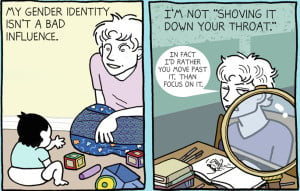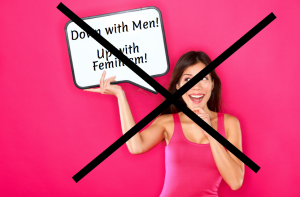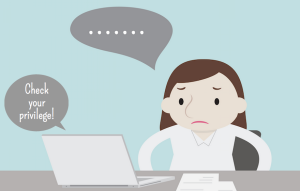
A person is sitting at a computer, looking upset and confused. The computer reads, “Check your privilege!”
I’m pretty fed up with privilege. But that doesn’t mean I hate privileged people.
When I write about the privilege that certain groups have, some people – usually those in the groups I’m writing about – get upset.
For example, I say how tired I am of how the system of white privilege excludes and harms non-white people, and some people accuse me of hating on white folks.
There’s only one problem: If you get upset when someone points out that you have privilege, that probably means you don’t fully understand what privilege is.
Because if you think having privilege means that you’re a bad person, or that you haven’t had struggles, or that you haven’t worked hard for what you have – then I can totally feel why you might be frustrated. If that were the case, then yes, it’d be completely unfair of me to claim that all white people or straight people or men or people of any other dominant group are living easy off their unearned privileges.
But having privilege doesn’t mean any of those things.
Unfortunately, common misconceptions about privilege are so widespread that they frequently shut down our opportunities to understand and be accountable for our part in society’s injustice.
Some people say that activists shouldn’t even use the word “privilege” because it immediately shuts down conversations with potential allies who feel guilty, blamed, or even attacked at the mere mention of the word.
But talking about privilege isn’t supposed to be comfortable.
In fact, that discomfort you feel can help you be aware of inequality and check yourself when you’re supporting it.
We’ll never be able to change the everyday ways we all contribute to injustice if we can’t talk about our own privilege – if we automatically reject the idea that it exists because we don’t understand it.
Each of us (yes, even the most disenfranchised) has an identity that benefits from the exploitation of another group, so refusing to face your own privilege helps keep oppression in place.
I bet if we examine the discomfort instead of avoiding it, we’ll find that some of the uneasiness you feel actually comes from some mistaken ideas about what privilege is and isn’t.
To start us off, here’s what Sian Ferguson provided as a basic definition of privilege: “a set of unearned benefits given to people who fit into a specific social group.”
From there, the details get more complex. Here’s what having privilege means and doesn’t mean.
1. Having Privilege Doesn’t Mean You’re a Bad Person
The fact that you get benefits that other people don’t is really messed up. So when someone says you have privilege, it can feel like they’re accusing you of deliberately taking from oppressed groups.
And if you’re making an effort to actively fight oppression, it feels even worse – like you’re trying your best, but people are still accusing you of doing something wrong.
But having privilege isn’t about deliberately demanding something – it’s just about the circumstances of your life that give you benefits you never asked for.
For instance, I have privilege as a temporarily able-bodied person. I don’t want to live in a world where I get accommodations that disabled people don’t have access to, but the truth is that I do.
That’s not my fault. But I recognize that I benefit from it and I should do something about it, because everyone deserves access to basic resources.
Besides, taking this system of discrimination personally, as if it’s just about something I’m doing wrong, would distract from the real point of talking about privilege: taking down oppression.
To be a supportive ally, I can’t just focus all the attention on my own guilt – I have to help center the voices of disabled people who spread knowledge about how people like me can do better. Their liberation is what disability rights are all about.
2. Having Privilege Means There’s a Whole System at Work
Privilege is not about individuals being bad people, but it is about entire systems that favor some groups and put down others.
These systems – like ableism, white supremacy, and classism – get structural support from laws, the media, and policies that affect our lives every day. Most of us aren’t taught that these systems are such an influential part of how the world works.
We learn that everyone can work hard to earn rewards, pull themselves up by their bootstraps to gain wealth, and be a decent person to get respect.
So finding out that your privilege gives you a head start in achieving these things can be shocking – it challenges what you’ve always thought to be true.
That’s why, to a certain extent, it makes sense that you haven’t always been aware of your privilege, and even that it’s hard to get used to the idea of having it.
The thing is, I’m not required to be aware of ableism, or even how I participate in it, in order to survive – which is part of my able-bodied privilege. I can do things like find housing that accommodates my physical needs without worrying about potential landlords discriminating against my ability.
But thanks to the hard work of disability advocates, I know that the system of ableism exists – so if I don’t commit to learning about and intentionally avoiding it, then I’m probably unintentionally causing harm.
3. Having Privilege Doesn’t Mean You Haven’t Experienced Oppression in Other Ways
“I don’t feel privileged.”
I’ve heard this time and time again from people learning about their privilege. And actually, I believe it.
Because we’re not taught to be aware of our privilege (keeping us in the dark is part of what keeps those oppressive systems in place), and because there are all kinds of systems of oppression working against all of us.
So having one type of privilege doesn’t mean you’re not oppressed in other ways.
Many poor white folks who learn about white privilege, for example, resist the idea because they’ve struggled financially – which makes life really hard. It’s difficult to grasp how you could’ve possibly benefited from privilege when all you’ve known is struggle.
Your white privilege doesn’t erase those struggles.
Just like white supremacy is a system that hurts people of color, classism is a very real system that affects poor white people’s lives in very real ways.
So if you’re poor and white, it’s true that you don’t enjoy as many benefits as wealthy white people do. Unlike someone who can easily buy food, you might be so desperate to feed your family that you risk something illegal like robbing a store.
But that doesn’t mean you don’t have white privilege – like a smaller chance of being arrested, incarcerated, or killed for taking such a risk.
4. Privilege Can Come in More Than One Form – And So Can Oppression
For many people, oppression shows up in more than one form.
For instance, every poor person faces barriers when they’re trying to find work, such as the inability to afford the clothes required to fit into a “professional” work environment.
But a poor person of color also has to deal with racial discrimination that makes a potential employer more likely to call a white applicant back than to give them a chance. A poor woman also faces workplace sexism that has potential employers judge her as less competent and less hirable than a man.
That doesn’t mean a poor white man would necessarily have an easy time finding work – because he still has to deal with classism. And he could face other identity-based discrimination too, like ableism, fatphobia, or homophobia.
But systems of oppression don’t work in isolation. They work together, under a larger system called kyriarchy.
So for a poor Black woman looking for a job, classism, racism, and sexism all work together against her.
5. Privilege Isn’t a Contest to Determine Who’s the Most Oppressed
All this talk of multiple forms of oppression may sound to you like a game of the Oppression Olympics.
I’m a queer Black woman – can I claim Oppression Olympic gold?
Just kidding. There are plenty of people who have struggles I don’t have, and I have struggles that other groups of people know nothing about.
The point of talking about privilege isn’t to determine who “wins” as the most oppressed (that sounds like a losing game to me anyway).
And it’s not to say that people who are privileged in some ways don’t deserve support.
For instance, some feminists believe that intersectionality dilutes the movement by taking away from sexism to focus on issues such as racism, ableism, and transphobia.
But expanding the focus to support all people harmed by gender inequality – not just white, able-bodied, cisgender women – isn’t about saying those women aren’t important, or that their issues aren’t real concerns.
It’s about saying that white, able-bodied, cisgender women’s concerns aren’t feminism’s only concerns.
So if you’re one of those women, you don’t have to give up talking about your own experiences with sexism – but you are responsible for navigating your own privilege as part of your justice work.
6. Having Privilege Means You Can Support the Most Vulnerable Among Us to Strengthen Your Own Fight
Intersectional feminism is a great example of how a movement that recognizes privilege is stronger than one that ignores it.
We can learn from this model of growth to check our own personal privilege without erasing our personal struggles.
Take the LGBTQIA+ movement.
Until recently, straight privilege included the right to marry anywhere in the US. A lot of time, money, and resources went into the fight for marriage equality, and achieving it is a great victory for queer people who want to get married.
But the right to marry doesn’t make a difference for other LGBTQIA+ issues, like high rates of youth homelessness and suicide, or the over two-thirds of LGBTQIA+ murders whose victims are transgender women of color.
Consider what it would be like if some of the resources and attention dedicated to marriage equality supported the most vulnerable LGBTQIA+ people living at the intersections of inequality, instead of the most privileged.
How would we address those issues? We’d have to get to the root causes of the systems that give straight and cisgender people privilege over queer, trans, and non-binary people.
Like shifting cultural beliefs about gender norms, providing resources to people struggling with poverty and discrimination, and offering some of the more than 1,000 benefits available for married people to everyone who needs them, including those who don’t want or can’t have a legal, traditional marriage.
These changes would help not just queer couples getting married, but also anyone who doesn’t perfectly follow the rules society dictates for their gender – as in, all of us.
That’s yet another fantastic perk of focusing on justice for everyone, not just people who have privilege.
7. Having Privilege Doesn’t Mean You Didn’t Work Hard or You Should Feel Bad About Your Good Fortune
Say you’re a man who’s been successful in a competitive STEM field. You’re happy with the money and recognition you’ve earned, feeling proud of your hard work, and then somebody tells you that your male privilege has helped you get to where you are today.
You cringe at the implications – are they saying you haven’t worked hard for what you have? Or that you should feel guilty about your good fortune?
No. It’s true that sexist ideas discourage girls and women from STEM subjects, giving you more access to your field than a woman has.
But that doesn’t mean that you don’t deserve your success. It means that everyone deserves the access you have, regardless of gender.
Nobody should be discouraged or excluded from any field because of who they are.
8. Having Privilege Means A Lot of People Can’t Access What You Have, No Matter How Hard They Work
Of course, it takes hard work to gain success in any field, no matter who you are.
But for some people, systems of oppression keep success out of reach even if they do work hard.
People who society treats as feminine, for instance, get messages throughout their lives telling them they’re not smart enough or good enough at math and science for STEM careers.
If they can overcome those messages to pursue STEM careers, they still face a misogynistic culture that devalues their skills, and treats them as less capable and less intelligent than people treated as masculine.
Some dismiss the idea of privilege by pointing to exceptions to the rule.
For example, LaNell Williams recently graduated with a bachelors degree in physics, and she’ll begin a masters/PhD program in the fall. As a Black woman, she’s pushed through both sexist and racist barriers that keep women and people of color out of physics. So she’s proving that it’s possible for a Black woman to succeed.
But consider the context: In 39 years, US physics doctorates went to 66 African-American women – and 22,172 white men. Williams is quite an exception.
Clearly, it’s not only hard work that determines your chances of getting one of those doctorates.
The circumstance of being a white man helps, too. And everyone deserves an equal chance.
9. Having Privilege Doesn’t Mean You’ve Never Been Put Down for That Privileged Identity
It’s possible that you’ve been put down for the very identity that gives you privilege – which is another reason having privilege doesn’t mean you’ve had it easy.
One example is how the US is dominated by Christianity in ways many of us don’t even notice. Christian values dictate popular ideas about things like our sex lives – even for people who aren’t even Christian.
So while Christians are persecuted in some other parts of the world, in the US, they get benefits such as having the vast majority of the politicians leading our country (like 100% of our presidents) share their faith.
But that doesn’t necessarily mean you haven’t run into difficulties if you’re a Christian in this country.
In some circles, including many activist communities, it’s not “in” to be a person of faith – so many people have been mocked, ostracized, or not taken seriously because they practice Christianity.
Nobody deserves to be treated that way – and naming the system of Christian privilege doesn’t deny that.
10. Having Privilege Refers to Systematic Benefits for Your Identity (But the Same Identity Trait May Still Attract Incidents of Prejudice)
For many people, the natural next question is this: If favoring Christians over non-Christians counts as systemic oppression, then why doesn’t mocking Christians mean the same?
Here’s why: Systemic oppression works in the context of the dominant culture.
In the US, the dominant religious culture is Christianity.
If someone mocks you for being a Christian, that’s absolutely not okay, and it’s an example of a person’s prejudice against your religion.
But on the flip side, your Christian privilege grants you time off work for your religious holidays, a “jury of your peers” who are likely to share your faith in court, and bias toward your religion in educational institutions.
Those are examples of the structural support you get from living in a society in which your religion is considered the norm.
Atheists, Muslims, and other non-Christians in the US live in this same society, but their beliefs aren’t supported like Christian beliefs are in institutions like the workplace and school.
In fact, they often have to deal with outright discrimination, like TSA profiling of Muslims.
The massively oppressive influence of systemic oppression is what makes privilege worth facing.
11. Having Privilege Doesn’t Mean You’re Not a Unique Individual
Do you ever feel like someone’s making a generalization about you when they say you have privilege?
I mean, the term “white people” refers to a pretty freakin’ big group, so talking about white privilege, as if every white person has the same experience, looks like painting a lot of people with a broad brush.
If you’re a white ally who does your best to avoid being racist, for instance, you might feel a little insulted about being grouped in with an overtly racist white person who has the same white privilege that you do.
Having privilege doesn’t erase your individuality.
There are white people who are well aware of their privilege, and working actively to be accountable to it. There are white people who have no idea what the term “privilege” means. There are white people who know about it and actively reject the idea in favor of racist views.
All have white privilege. But that doesn’t mean they’re all the same.
12. Having Privilege Means We All Participate in Discriminatory Systems in Different Ways
Okay, I just said privilege isn’t about generalizing and now I’m saying we all participate in discriminatory systems – what gives? Let me break it down.
Systems like white supremacy, colonization, and xenophobia require all of our help to keep them going. And studies show that we do all help, whether we mean to or not.
Take xenophobia – the fear of people from other countries – for example. Maybe you were born in the US and you’d never think to attack an immigrant just because they moved here from another country.
But in some small way, you do believe in stereotypes about immigrants as criminals who are “taking our jobs,” so you’ve voted for political candidates who ran on a platform of “securing our borders.”
Or you’ve said a microaggression like calling someone “exotic” without realizing why that’s offensive.
Or there was that one time when you didn’t say anything when one of your friends told an insensitive joke about “foreigners.”
These actions aren’t the same as physical violence, but they’re some of the ways that even well-meaning members of the dominant US culture are complicit in upholding the system of xenophobia.
Hell, even immigrants can participate in this system.
They do this by policing each other through pressure to conform to US culture, only teaching their children English, and shaming themselves – like the way immigrants of color can internalize racism and doubt their own beauty.
The difference is that when oppressed people participate in dominant systems, they don’t get the benefits that the dominant group does.
To address that inequality, we all have to start with ending our own contributions to structural oppression.
13. Pointing Out Privilege Doesn’t Mean Hating On the People Who Have It
When Everyday Feminism’s James St. James wrote about examples of male privilege from a trans guy’s perspective, the response was astounding.
So many readers hadn’t picked up on these ways that society treats men and women differently – because so many were examples of subtle sexism that goes unnoticed. That includes sexism from people who don’t even realize they’re being sexist.
In spite of the erroneous myth that feminism is about hating men, pointing out male privilege and advocating for gender equality isn’t about trying to bring men down.
Bringing attention to the (often invisible) ways that men get respect simply because they’re men helps us realize that the opposite is true: Women often don’t get respect simply because we’re women.
You certainly don’t have to hate men to believe that people of all genders deserve respect.
14. Pointing Out Privilege Means Supporting the Privileged Group to Be Fully Human
In general, having privilege seems like a pretty sweet ride – getting access to unearned benefits is a really good deal.
But in the end, the systems upholding privilege hurt all of us, including dominant groups.
This is another reason that pointing out male privilege is quite the opposite of hating men: Gender equality means everyone, including men, gets the support they need.
To access the benefits of male privilege, men have to conform to a toxic ideal of masculinity. They’re surrounded by messages like “men don’t cry” and “man up,” setting them up with damaging expectations.
The truth is, nobody fits perfectly into the gender role society demands for them. The idea that we have to fit gender norms in order to be valuable harms all of us, even men with privilege.
Getting rid of these toxic ideas about gender would help everyone flourish as their true selves, free from society’s rigid rules.
15. Having Privilege Doesn’t Mean Your Privilege Is Totally Separate from the Ways You’re Oppressed
Okay, just when you’re getting the hang of how the complicated details of privilege work, I’m throwing you a curve ball. Stay with me here.
Thin privilege is an example of how your unearned “benefits” can actually be tied to your oppression.
People with thin privilege don’t have to deal with fatphobia – the public’s fear and hatred of fat bodies.
But all people, including thin people, can be subject to body-shaming. For women, thin privilege is connected to misogynistic beauty ideals.
Essentially, a thin woman has privilege because she’s closer to society’s image of ideal beauty – and she’s being objectified, which isn’t exactly a good thing.
Having privilege doesn’t mean that’s not part of your truth.
16. Having Privilege Means Your Benefits Can Be Conditional
It’s possible to have privilege in some situations, but not others.
For example, colorism within communities of color gives light-skinned people of color benefits that dark-skinned people don’t have. Our society perceives lighter skin as less threatening and more attractive, because it’s closer to a Eurocentric ideal of beauty.
But the very same messages that favor people of color with light skin over those of us with dark skin also put down light-skinned people of color in favor of white people.
So colorism within communities of color is a terrible cycle in which nobody wins.
It sure doesn’t mean light-skinned people of color have it easy, and recognizing light-skinned privilege isn’t the same as claiming that the people who have it never struggle.
17. Having Privilege Doesn’t Mean There’s Nothing You Can Do About It
Guilt is a feeling that can leave you without taking action.
Recognizing your privilege can bring up hopelessness, the sense that there’s nothing you can do about it.
But if you’re a white ally and people of color call on you to recognize your privilege, they’re saying that there is something you can do about it. You don’t have to just simmer in your white guilt.
Just like I, as a cisgender ally, can spot opportunities to better support trans and non-binary people when folks like Sam Dylan Finch point out the common mistakes that cis people are making.
Instead of guilt, you can respond to your privilege with empathy.
Learn what it would take for everyone to have the access you have and do your part to make it happen.
18. Having Privilege Means You Have a Choice About What to Do with It
This stuff is complicated, but the truth is that everyone already has a wealth of knowledge about oppression – because of the lived experience of the ways we’re oppressed.
I know about racism, heterosexism, and misogyny because I live with the impact of those systems every day.
Unlike people with white privilege, straight privilege, and male privilege, I don’t have a choice about whether I want to face these forms of oppression or not.
When it comes to the ways I have privilege, on the other hand, I do have a choice in the matter. And you do, too.
You could look away, enjoy the benefits of your privilege and ignore the inequalities that harm people who aren’t like you.
Or you can step up to the responsibility of using your privilege for good.
Support policies that give everyone access to the resources they need and deserve. Center the voices of people who are marginalized in multiple ways, so they can lead our movements to the roots of the structural oppression that harms us all.
***
Embrace the uncomfortable realities of what it really means to have privilege. That’s the empathy that can help fuel the fire for the change that will, in the end, benefit all of us.
This is hard work – and just like having privilege doesn’t mean your life has been easy, I’m not going to say that navigating your privilege will be easy.
But here’s one thing I know about you: as a human being, you’ve struggled, just like every other human has struggled. And somehow, you got through it.
Probably even before you had a name for what you were going through or an understanding of how your struggles relate to oppression.
So I know you can face hard truths. With what you know about your privilege, you can make an effort to thoughtfully navigate your position in the world without causing harm.
Do this with compassion for yourself, and empathy for others, and you’ll be well on your way to making the best possible impact on your own life and on the world around you.
[do_widget id=’text-101′]
Maisha Z. Johnson is the Digital Content Associate and Staff Writer of Everyday Feminism. You can find her writing at the intersections and shamelessly indulging in her obsession with pop culture around the web. Maisha’s past work includes Community United Against Violence (CUAV), the nation’s oldest LGBTQ anti-violence organization, and Fired Up!, a program of California Coalition for Women Prisoners. Through her own project, Inkblot Arts, Maisha taps into the creative arts and digital media to amplify the voices of those often silenced. Like her on Facebook or follow her on Twitter @mzjwords.
Search our 3000+ articles!
Read our articles about:
Our online racial justice training
Used by hundreds of universities, non-profits, and businesses.
Click to learn more







